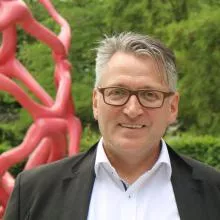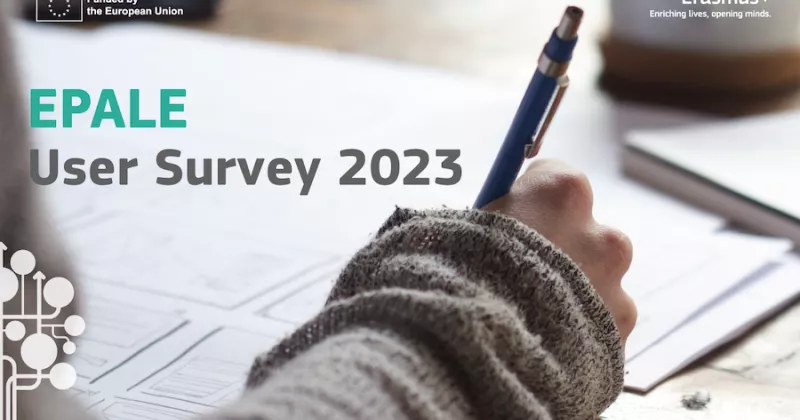Appetite for Enterprise: female migrants discover their entrepreneurial skills
Original language: German
Reading time approx. 4 minutes - Read, Like, Comment!
How can we help female migrants to recognise their entrepreneurial potential? Which skills must they acquire to successfully establish a business? The ARISE (“Appetite for Enterprise”) project addressed these questions and implemented training measures for female migrants in six European countries. The project yielded many results, one of which is a toolkit for educational institutions wishing to provide similar training.
In a 2012 action plan , the European Commission set itself the goal of promoting an attractive environment for diverse entrepreneurship. Their goal was to make the European Economic Area stronger and more coherent. Providing support for entrepreneurship was part of the Europe 2020 Strategy, which aimed to create the prerequisites for smart, sustainable, and inclusive growth. Diverse entrepreneurship is a powerful engine for economic growth and job creation: It creates new businesses and jobs, opens up new markets, and promotes new skills. Furthermore, it offers existing companies an opportunity to develop succession plans and secure existing jobs.
Female migrants as entrepreneurs in the EU
Migrant women make up an important group among the EU’s potential business founders. In fact, they already run a considerable number of start-ups. However, there are often legal, cultural, and linguistic obstacles to their entrepreneurial spirit, and many companies fail at a very early stage. Female migrants are sometimes faced with additional challenges such as household work and raising children.
How can we help female migrants recognise their entrepreneurial potential? Which skills must they acquire in order to successfully establish a business? The “Appetite for Enterprise” (ARISE) project addressed these questions. ARISE was co-financed using funds from the European Union Asylum, Migration and Integration Fund (AMIF – Union Actions) and was developed and implemented in a total of six countries (Italy, Greece, Germany, France, Austria, and Sweden) from February 2017 until January 2019.
Both transnational and regional measures contributed to the success of the project: after carrying out an analysis of the social and economic needs, as well as the learning needs, of female migrants at the start of the project in each partner country, international specialist training lasting several days took place in Palermo in autumn 2017. Up to 20 regional workshops took place in each of the partner countries during the first half of 2018.
Workshops for female entrepreneurs: one example from Germany
VNB, a state institution for adult education in Lower Saxony, offered women from the Nienburg/Weser region an opportunity to take part in 20 morning workshops. The weekly workshops took place in close cooperation with the District of Nienburg/Weser at the Koordinierungsstelle Frau und Wirtschaft [Women and Business Coordination Office] in Nienburg. The subjects covered included time and conflict management, body language and self-assertion, marketing and PR, business plans, and an ‘elevator pitch’. Participants also took field trips to trade shows and visited successful female entrepreneurs.
In June 2018, participants celebrated their newly completed qualifications and were awarded certificates in Nienburg. Stakeholders from education, commerce, and local and federal government attended the ceremony. For some of the women, the workshops were a stepping stone to careers as freelancers or business owners. However, not all of the participants chose this path: During the course of the project, some discovered that they did not see themselves as entrepreneurs—a meaningful insight in itself. Taking part in continuing education therefore not only provided the migrant women with extremely useful knowledge, but also made their own personal further development clear to them.
The following short film [DE] provides an insight into the motivation of some of the participants from Germany:
Similar campaigns, each of which were individually tailored to the wishes and needs of the migrant women taking part, were conducted in the other five partner countries. These were not exclusively limited to those female migrants wishing to operate as sole traders. In the case of the Italian project partner CESIE in Palermo/Italy, for instance, participants took the first steps towards establishing a community social enterprise (“AFRITA”) in which most of the participating women will be involved.
Over 60 diverse participants from 6 European countries met in Hanover on 30 November 2018 to present the results of the ARISE project, to take stock, and to look at possible future activities. Female migrants who successfully completed the programme from the partner countries took the opportunity to share their experiences as young entrepreneurs.
In conclusion, the project has been a complete success—recommended for imitation!
Information and materials regarding the project (including a toolkit for implementing such a programme of qualifications) can be found on the project website.
| Log in now to take part in the discussion! |
More about the author:





Jak dostosowano warsztaty do sytuacji tych kobiet?